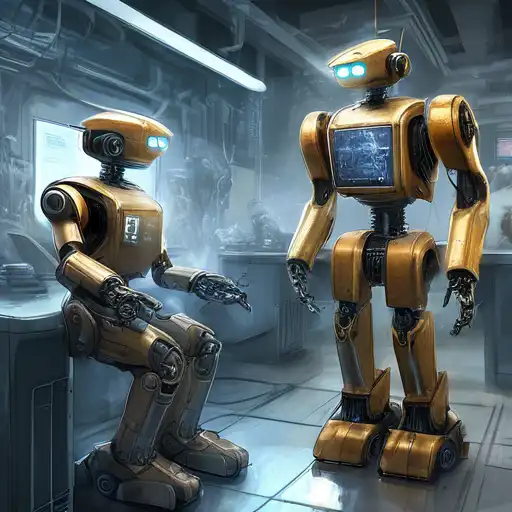Understanding the Ethical Dimensions of Autonomous Robots
In the rapidly evolving world of technology, autonomous robots represent a significant leap forward. These self-operating machines, capable of performing tasks without human intervention, are increasingly becoming a part of our daily lives. From self-driving cars to robotic assistants, the potential applications are vast. However, with great power comes great responsibility, and the ethical implications of these technologies cannot be overlooked.
The Core Ethical Questions
At the heart of the debate are several core questions: Who is responsible when an autonomous robot makes a mistake? How do we ensure these machines make ethical decisions? And what rights, if any, should autonomous robots have? These questions challenge our traditional notions of accountability and morality.
Accountability and Liability
One of the most pressing issues is determining accountability in the event of a malfunction or error. Unlike traditional machines, autonomous robots can make decisions based on complex algorithms and learning processes. This raises the question: Should the manufacturer, the programmer, or the robot itself be held liable? The answer to this question could redefine legal frameworks around the world.
Decision-Making and Ethics
Another critical area is the programming of ethical decision-making. How do we encode moral principles into machines? The Trolley Problem, a classic ethical dilemma, has been adapted to test how autonomous vehicles make life-and-death decisions. This highlights the complexity of creating machines that can navigate moral landscapes.
The Rights of Robots
As robots become more advanced, the question of their rights becomes more pertinent. If a robot can learn, adapt, and possibly feel, does it deserve rights similar to those of humans or animals? This debate touches on the very essence of what it means to be alive and could have profound implications for the future of artificial intelligence.
Looking Ahead: The Future of Autonomous Robotics
The development of autonomous robots is not slowing down, and neither should the conversation about their ethical implications. It is crucial for policymakers, technologists, and ethicists to work together to create guidelines that ensure these technologies benefit humanity while respecting moral and ethical boundaries.
Creating Ethical Frameworks
Developing comprehensive ethical frameworks for autonomous robots is essential. These frameworks should address issues of accountability, decision-making, and rights, ensuring that as these technologies advance, they do so in a way that aligns with societal values.
The Role of Public Discourse
Public discourse plays a vital role in shaping the future of autonomous robotics. By engaging in open and informed discussions, society can influence the direction of technological development, ensuring that it reflects our collective ethical standards.
In conclusion, the ethics of autonomous robots is a complex and multifaceted issue that requires careful consideration. As we stand on the brink of a new era in technology, it is imperative that we navigate these moral questions with thoughtfulness and foresight. The decisions we make today will shape the future of humanity and our relationship with the machines we create.
